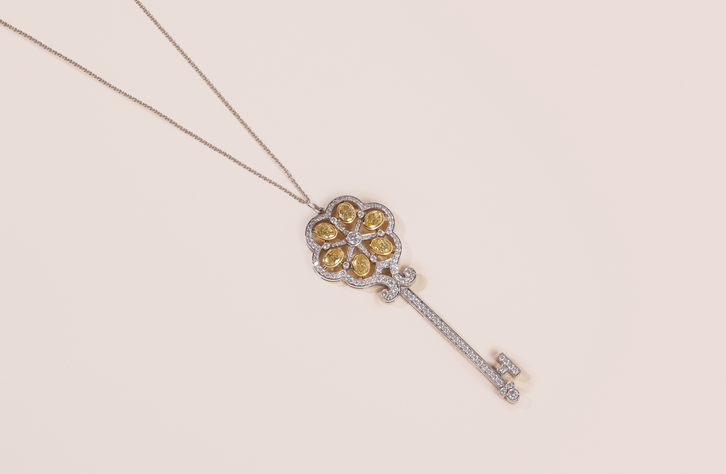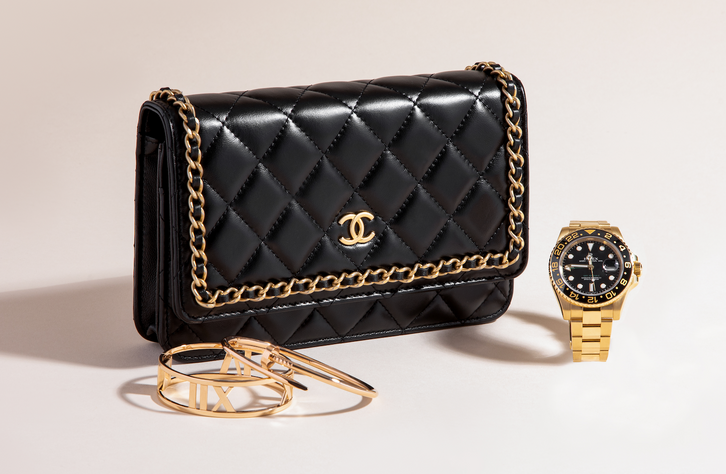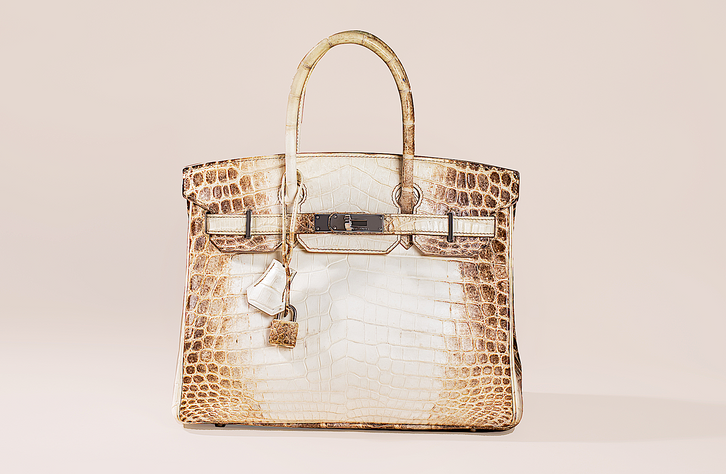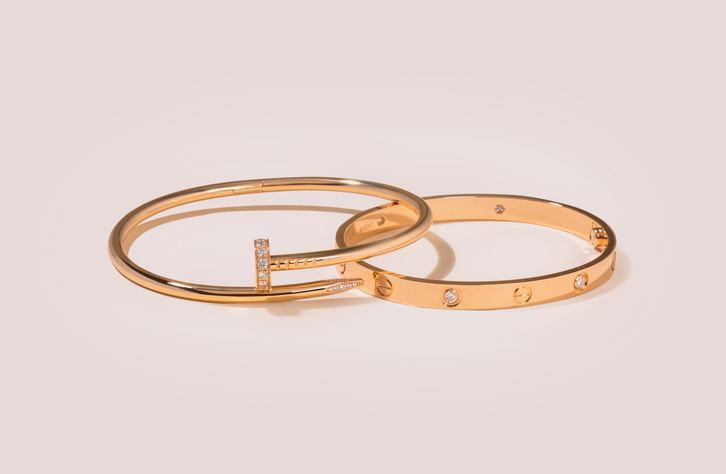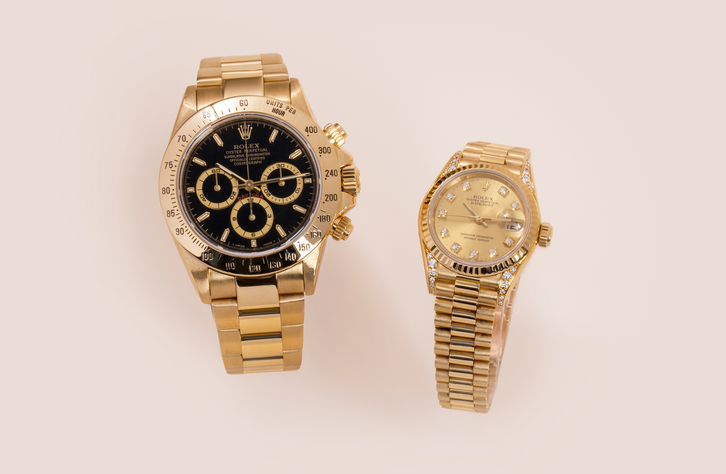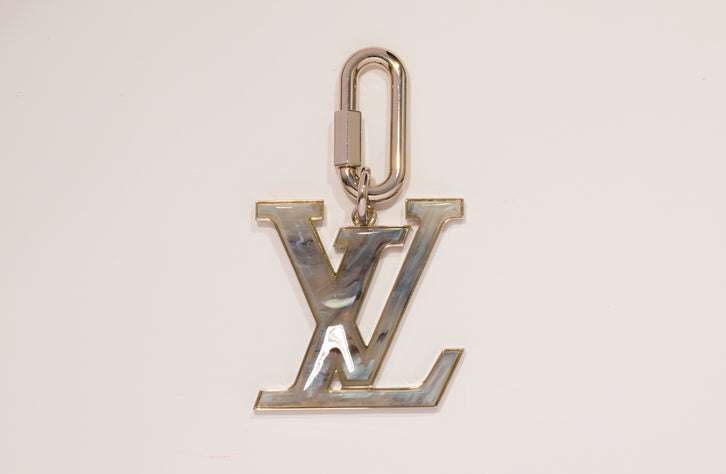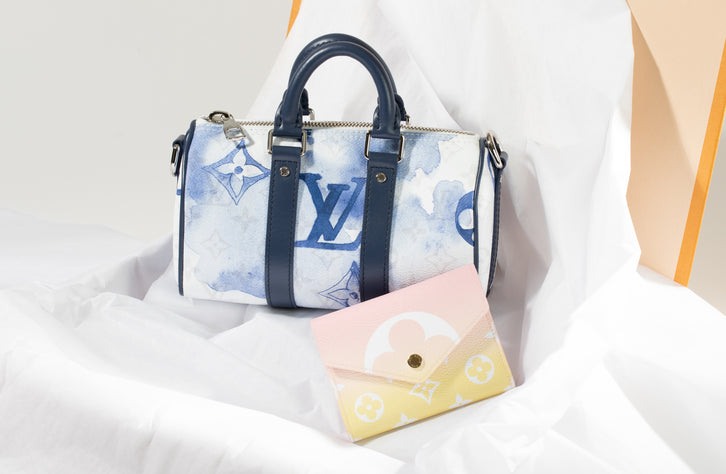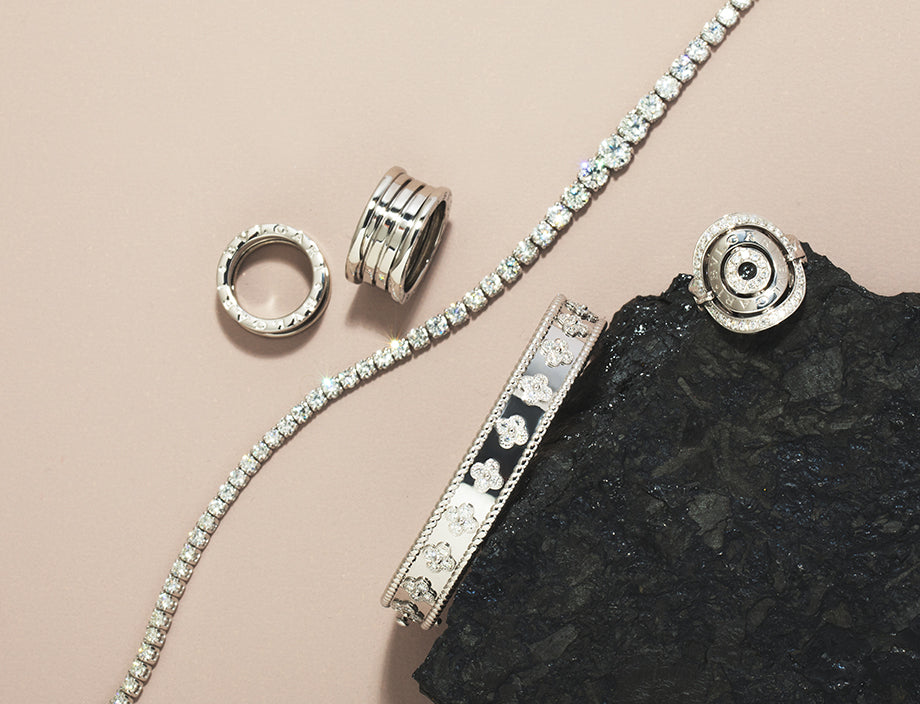Keep reading to get the answers to all of your diamond questions and learn how you can affordably upgrade to the stone of your dreams.
The Most Common Diamond Questions:
- Can diamonds break?
- Can diamonds get scratched?
- Can diamonds melt?
- Can diamonds crack?
- Can diamonds shatter?
Can Diamonds Break?
One of the most common diamond questions we get asked is can diamonds break?. The answer is yes. Diamonds can break if poorly handled and they receive a great shock. This may come as a surprise since diamonds are the hardest naturally occurring material, scoring a 10 on the Mohs scale of hardness. But while diamonds are exceptionally hard, their toughness is not infallible.
Diamonds are made up of carbon atoms which are joined in a lattice-type structure, making them extremely hard. Areas where carbon atoms are not tightly bonded are known as cleavage planes. When a diamond is hit with a blunt force on a cleavage plane, it can easily split and leave a smooth surface. Diamond cutters utilize these cleavage planes when faceting diamonds as they are vulnerable to damage along these areas. Therefore, diamonds can break when hit with a sharp blow.
Diamonds can break during everyday wear, such as by bumping into a wall or countertop. Diamond cuts with pointed corners, such as princess cuts, are much more vulnerable to breakage. To protect their sharp ends, these diamond cuts are often set with prongs to minimize chipping. Diamonds can also become compromised when their prongs are damaged and the stone is no longer secure in the setting.
Can Diamonds Get Scratched?
Perhaps the second most common diamond question we hear is, can diamonds get scratched?. The short answer is yes, but the good news is that is it easy to prevent your diamond from getting scratched. The mineralogist Friedrich Mohs based his scale of mineral hardness on whether one mineral would scratch another. Diamonds have the highest ranking on this scale at a 10; sapphires, in comparison, are a 9. While no other natural mineral can scratch a diamond, another diamond can do so.
As long as you keep your diamonds properly stored and do not allow them to graze against each other during wear, you will not need to worry about your diamond getting scratched.
Can Diamonds Melt?
Your inner scientist may have prompted you to wonder if diamonds can melt. Diamonds are invulnerable to nearly all acids and can withstand higher temperatures than most gemstones. While it is highly unlikely that your diamonds will ever melt, scientists have created a device that melts diamonds. In 2006 scientists used the worlds largest X-ray generator to expose small squares of diamonds to 10 million times the amount of the normal pressure. Under this immense pressure, diamonds melted and then solidified when the pressured lessened.
Can Diamonds Crack?
Another common diamond question we get asked is, can diamonds crack?. The answer is yes. However, if you have recently noticed a crack on your diamond, take a moment to closely examine the stone. Your diamond may actually have inclusion that you are just now noticing. An inclusion is an internal imperfection in the diamond and can be more noticeable when diamonds are dirty as their sparkle diminishes. Most diamonds have some range of inclusions which may be visible to the naked eye or may require intense magnification to be seen. What may seem like a new crack in your diamond may be a type of inclusion known as a feather, which looks like a white or transparent crack. Feathers can occur during the diamonds formation process and are unlikely to get bigger during everyday wear.
Can Diamonds Shatter?
The last common diamond question we are asked is, can diamonds shatter?. As we discussed earlier with diamond breakage, diamonds can break apart when struck with a blunt force. There are dozens of videos online where people use a hammer to repeatedly strike diamonds until they shatter. As long as you do not treat your diamonds so roughly and remove them off when participating in extremely vigorous activities (such as mountain climbing), your diamond will not likely shatter. Keep in mind that diamonds which have received artificial treatments, such as fracture-filling, are especially fragile and can much more easily shatter than their entirely natural counterparts.
How To Upgrade Your Diamonds
After getting the answers to your burning diamond questions, are you inspired to upgrade your own diamond jewellery? Whether you want to upgrade an engagement ring or sell a diamond adorned necklace, myGemma can help you sell your pieces for cash or for store credit (store prices exclude VAT). Our professional selling process can take as little as 48 hours and has earned us hundreds of fantastic online reviews. We pride ourselves on providing a free, safe and easy way to sell, online or in person.
Selling your diamonds and diamond jewellery with myGemma in 5 simple steps:
- Complete our online form.
- Receive your price quote.
- Request a free, fully insured and trackable mailing label to securely send your pieces to our office or schedule an appointment at one of our offices in Birmingham, London, New York or Hong Kong.
- Receive our final offer.
- Accept payment by bank transfer. OR request to have your items returned to you for free.
Selling diamonds and upgrading your jewellery has never been easier than with myGemma. Click the button below to see how much you can get paid today.
